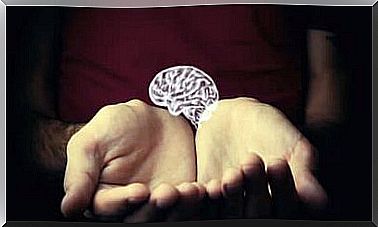Three Serious Consequences Of Work-related Stress

Some days our work demands a lot from us. When this is more than we can personally handle, these demands can lead to work-related stress.
In the short term, all these demands have no negative impact on our mental health. We have adaptive mechanisms and coping strategies to deal with them. However, if these demands last for a long time and are added to more and more, it can eventually lead to stress fatigue.
This is when our coping strategies stop working because we can no longer adapt to the stress. In other words, you are mentally exhausted and this eventually leads to work-related stress. You can’t turn on your coping strategies because you’re psychologically burned out.
Mental fatigue due to work-related stress is unfortunately a common problem in our society. About 60% of all people who go to therapy experience very high levels of work-related stress. However, as the therapy progresses and they get better and better, they learn to apply stress management and coping strategies at work.
However, they must continue to work on managing their stress. If they don’t, the changes won’t last long. At some point, the effects of work-related stress will rear its ugly head again and their clinical picture will be bleak again.
To draw attention to this problem and prevent it as much as possible, in this article we will discuss the three most dangerous consequences of work-related stress.

Concentration and memory problems
One of the most common consequences of work-related stress is neuropsychological wastage. This type of stress then impairs cognitive functions such as attention, reasoning, memory, and decision-making.
Why does stress affect our mental functions? This is because we are constantly performing tasks that need to be monitored and this causes us to develop a high need for control.
How can work-related stress negatively affect our mental processes?
Another negative consequence of work-related stress is that it reduces our ability to concentrate. Often, when someone has a demanding job, they teach themselves to multitask. And this, of course, means that he has to perform several tasks at the same time.
However, multitasking is very harmful to your concentration. It teaches you to keep functioning while being stimulated from multiple angles at the same time. Then when you want to focus on one thing, your mind is distracted by the habit of jumping from one task to another. This means that you are actually just distracted all the time.
It is important to understand that attention is a process that involves adding information to your psychological system. If the attention changes, your memory will also change. In other words, you have to consciously pay attention to remembering things.
If the information does not enter your mind correctly, it cannot be kept (stored). Work-related stress is therefore bad for your memory because it affects your attention and concentration.
Fear
Stress causes your sympathetic nervous system to prepare to flee or fight. Although the cause of the stress is not a matter of life or death, your body does secrete the same hormones.
The body produces cortisol (the stress hormone), adrenaline and noradrenaline. These hormones increase the heart rate, make you more alert, make you sweat, make your breathing heavier and much more.
If your body is constantly on alert, this will eventually lead to anxiety. What you should be especially concerned about, however, is if the anxiety due to the work-related stress you are experiencing persists for a long time. This causes tension and discomfort, which can manifest as chest pressure, stomach pain and an increased heart rate.

Mood swings and symptoms of depression
Our mood is the result of a simple calculation: positive moments + negative moments = state of mind (joy or sadness). Unfortunately, work-related stress increases the number of negative moments.
If you don’t manage to tip the scales on the bright side, you may experience the following: I work hard, I work a lot, I exhaust myself, and I get nothing out of it .
Stress also causes the body to produce cortisol. High levels of this hormone are directly linked to depression. We don’t know whether stress causes depression or vice versa, but we do know that they are directly linked.
So if you have a lot to do at work, and these tasks come with a lot of pressure to complete them, no time for positive moments and high cortisol levels, then all the ingredients are there to create a depressed mood.
Finally, we would like to emphasize that the consequences of work-related stress in this article also occur in exactly that order. This means that you will be the first to suffer from concentration and memory problems. Then from fear. And finally from a depressed mood.
It is therefore very important to learn how to deal with work-related stress. If you have already tried it yourself, but you have not succeeded, consult a psychologist. A psychologist has many more resources at his disposal to maximize your performance and reduce stress.









